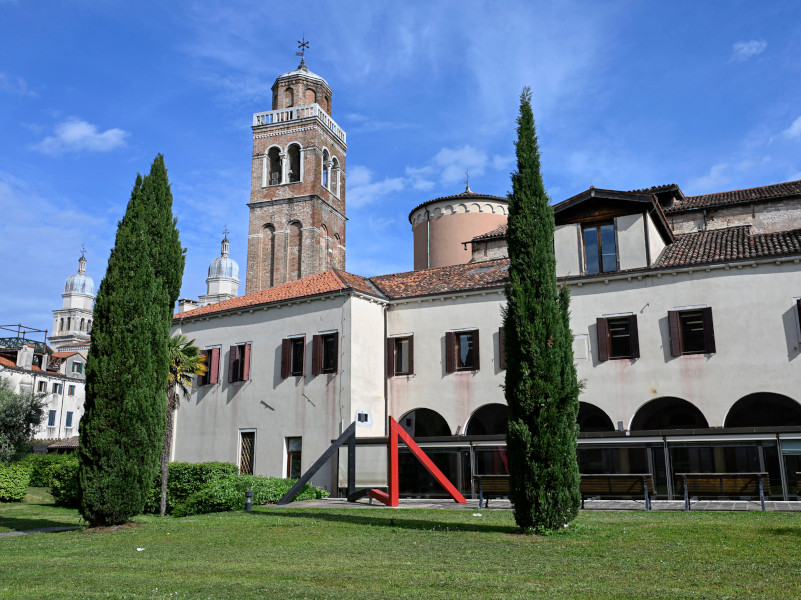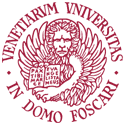4th Conference on the Endangered Languages of East Asia
"On(c)e and (for) all", 5th-8th May 2026
Aim
The Department of Asian and North African Studies at Ca’ Foscari University of Venice is pleased to announce the fourth meeting of the Conference on the Endangered Languages of East Asia (CELEA). The aim of CELEA is to gather at Ca’ Foscari University of Venice scholars, researchers, and other academics who work on endangered, indigenous, or minority languages spoken in the territories of East Asia. With this conference, the University wants to broaden its perspective on the linguistic diversity of the East Asian countries whose main languages are being taught in its Department of Asian and North African Studies. Thus the University hopes to raise an interest towards the less-known languages of Asia and foster active investigation on them, while giving researchers from all over the world the opportunity to meet and share their knowledge.
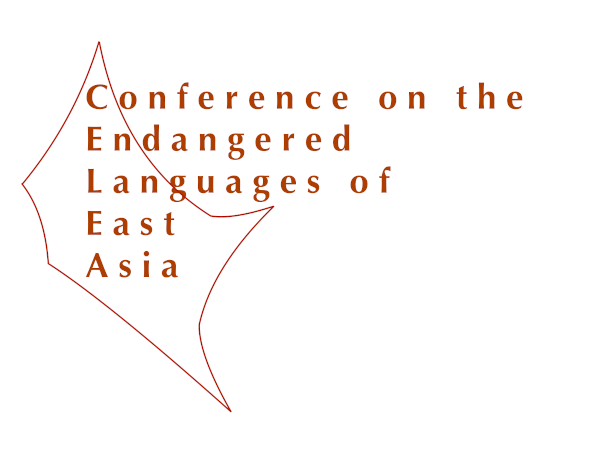
The conference focuses primarily on the endangered, indigenous, and minority languages of Japan, China, Korea, the Russian Far East, Mongolia, Vietnam, Thailand and Taiwan so priority will be given to contributions that discuss languages spoken in these countries. However, contributions dealing with languages spoken elsewhere in Asia will also be more than welcomed. Please note that contributions addressing any aspect of the official or main languages spoken in these territories (e.g. Japanese, Chinese, Korean, etc.) fall out of the scope of the conference and will not be considered. We specifically encourage PhD students and young researchers to present their work at the conference
We are planning CELEA3 as a hybrid event that participants will be able to attend either in person or remotely. See below for reduced fees if you wish to join remotely.
Conference topic
As the general theme of this fourth meeting of CELEA we have chosen units and wholes, to explore the possible interpretations, applications, and attitudes towards the concepts of singularity and entirety within the different minority or minoritized languages of East Asia.
As usual, we invite contributions that address the Conference’s theme from the perspective of descriptive linguistics, sociolinguistics, and historical linguistics, and explore issues related to the following (other topics are also welcome):
- formal expression(s) of ‘one’ and ‘all’, their semantic distinctions when employed as quantifiers and pragmatic uses when employed as markers of speaker’s evaluation.
- synchronic uses of ‘one’ and ‘all’ with specific grammatical functions (e.g. as markers of TAME, (in)definiteness, number, …) or as items pertaining to distinct word classes (articles, pronouns, …).
- non-prototypical singulative-collective or singular-plural number systems.
- description of the numeric system (or of coexisting systems) in one or more languages.
- contrasting linguistic attitudes of individuals and the community and their effects on language maintenance, wellbeing, and planning.
- representation of the plurality within minority or minoritized languages and communities especially at an institutional level, nationally and internationally.
- possibilities of using a multi-variety approach in language teaching and learning in the context of language revitalization (e.g. applicability of the polynomic approach).
- diachrony of items expressing ‘one’ and ‘all’.
- reversibility or circularity of language change and grammaticalization, especially with regard to cases in which these processes lead to a stage that is identical or similar to the one they started from, to prove that change is not always once and for all.
- differences in speed and extension of change within a specific language category or paradigm, relatively to a single language, more language varieties within one family, or a Sprachbund.
Whatever the topic, we particularly favor contributions that take a typological stance.
Programme
Further information about the programme will be published soon.
6-8/05/2024 - CELEA3: “Setting boundaries: how to (re-)draw the lines defining endangered languages”
|
|
Programme 6-8/05/2024
Invited speaker: Juha Janhunen (Professor Emeritus, Helsinki University) |
177 KB |
|
|
Book of abstracts 6-8/05/2024 | 1 MB |
3-5/05/2022 - CELEA2: "Time in endangered languages and endangered languages through time”
|
|
Programme 3-5/05/2022
Invited speaker: Ekaterina Gruzdeva (Helsinki University) |
140 KB |
|
|
Book of astracts 3-5/05/2022 | 1 MB |
2-3/09/2020 - CELEA 1: "Language obsolescence: the challenge for linguists and communities"
|
|
Programme 2-3/09/2020
Invited speaker: Anna Bugaeva (Tokyo University of Science / NINJAL) |
619 KB |
|
|
Book of abstracts 2-3/09/2020 | 1 MB |
Submissions
Guidelines
Abstracts are invited for 20-minute oral presentations (plus 10-minute discussion) on any area of linguistics including (but not limited to) phonetics, phonology, morphosyntax, semantics, pragmatics, sociolinguistics, and historical linguistics. All abstracts submitted for oral presentations must comply with the overall topic of the conference, regardless of the area of linguistics the author decides to focus on.
Abstracts should be anonymous – they should not include the name(s) of the author(s) nor their affiliation. Please note that name(s) and/or affiliation should not appear in the name of the file you submit either.
Only one abstract per person (or one single-authored abstract plus one additional co-authored abstract) is allowed.
All abstracts should be submitted in English, which will also be the language of the conference. Abstracts should not exceed 500 words, excluding references but including examples, tables, and graphs. Abstracts exceeding the word count or containing the author’s name and/or affiliation will not be considered for paper or poster presentation at the conference.
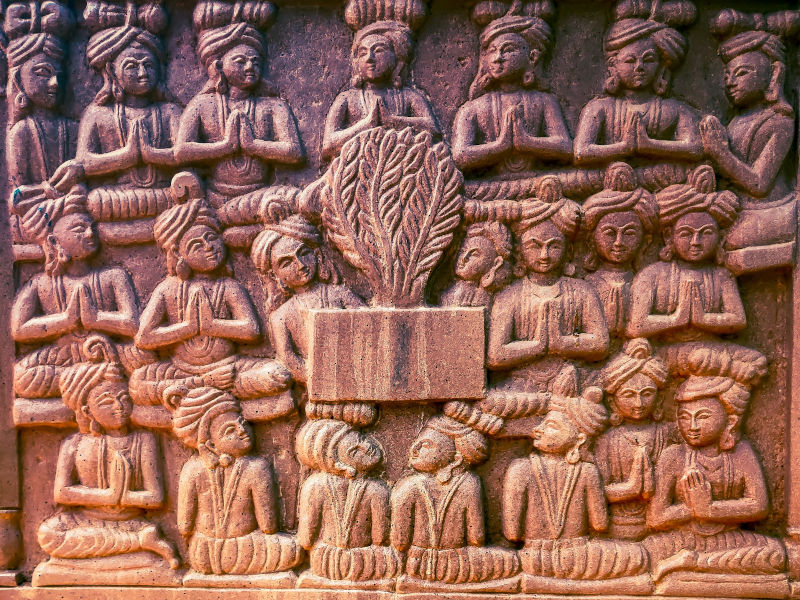
Abstract submission
To submit your abstract please use EasyAbs. Once you log in, follow the instructions to finalize your submission. Before you proceed, please make sure that your abstract complies with the guidelines for submission (see above). We kindly ask you to submit your abstract in .pdf format.
Important dates:
- Abstract submission: November 1st, 2025 - January 31st, 2026
- Notification of acceptance: mid February 2026
- Registration deadline: March 31st, 2026
- Deadline for abstract resubmission (for book of abstracts): April 15th, 2026
To resubmit your reviewed abstract after the notification of acceptance please send it via email directly to one of the contacts you find at the foot of this webpage.
Fees
Presenters in person
If your abstract is accepted to be presented as an oral contribution at the conference, the fees are allocated as follows:
- Faculty members: € 90
- PhD and master students: € 50
Presenters online
- Faculty members: € 50
- PhD and master students: € 50
Once you get the notification of acceptance, the organizers will be in touch with you regarding the fee payment, they will assess your fee status and provide you with the bank coordinates to make the payment ahead of the conference days.
Audience members
If you are not presenting a paper/poster at the conference, you are welcome to attend as an audience member. The same presenter fees apply also in this case.
To register to the conference as an audience member you can simply get in touch with us expressing your will to participate. Please include your full name and affiliation when sending your message – the organizers will assess your fee status and provide you with the bank coordinates to make the payment ahead of the conference days. Please also note that the deadline for registration is March 31st, 2026.
Students and faculty members of Ca’ Foscari University are welcome to attend the conference free of charge.
Conference dinner
On the evening of May 7th, after the conference, you are invited to attend the conference dinner (venue TBC). The conference dinner fee is €50 for both faculty members and students. If you wish to join us at the dinner, you will be asked to pay the fee together with your allocated participation fee at the moment of registration.
Venue
Where
- Department of Asian and North African Studies, San Sebastiano, Dorsoduro 1686, 30123 Venice (Italy)
Travel
You can reach Venice by plane, train and bus.
You can fly either on Venice Marco Polo airport or on Venice-Treviso Canova airport. The majority of intercontinental flights arrives at Venice Marco Polo airport. Both airports are connected to Venice island via a direct bus service, more details on the web pages: Venice Marco Polo airport, Venice-Treviso Canova airport. Alternatively, you may choose to get to Venice by train or by water taxi.
Accommodation
You will find many convenient accommodations for your stay in Venice. Since walking around in Venice always takes a bit of time, we suggest you look for an accommodation in the Dorsoduro or Santa Croce areas – this way you will be no more than 15-20 minutes away from the conference venue.
